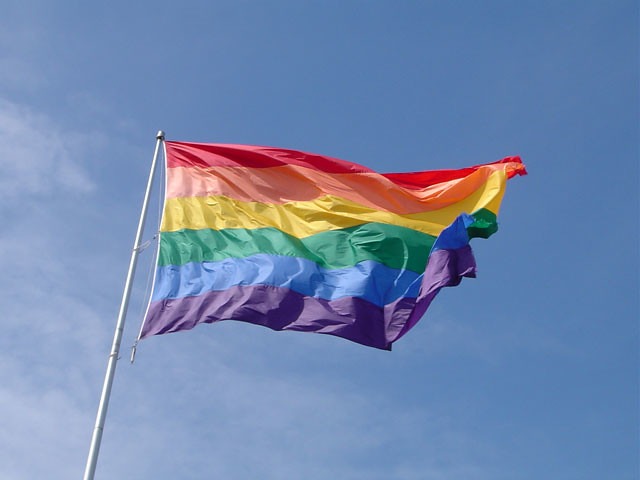The pride of sport: The past, present, and future of LGBTQ+ inclusion in sport
At the London 2012 Summer Olympic games, just 23 out of more than 10,000 Olympians openly identified as LGBTQ, with only three identifying as gay men. The number was deemed “absurdly low” by OutSports founder Jim Buzinski, describing how at the time, compared to the arts, politics, and business worlds, the sports industry was the “final closet in society”.
Flash forward to the most recent Summer Olympics in Tokyo, nearly 10 years on from London, and it’s safe to say that whilst this closet may not have been blasted open, it has certainly been left ajar for any athletes who feel safe enough to emerge from it.
186 publicly out Olympians competed, more than all previous Summer and Winter Games combined, seeing the Games be dubbed the ‘Rainbow Olympics’ due to the success of its queer athletes. Amongst them included the Games’ first transgender athletes, New Zealand weightlifter Laurel Hubbard, and Canadian footballer Quinn, the later of whom became the first transgender Olympian to win a gold medal.
At the upcoming Games in Paris, Tokyo’s records look set to be broken. The Games are set to celebrate the message of inclusion with the slogan “Games Wide Open” and the announcement of the first ever ‘Pride House’, described as a “safe identifiable, and welcoming space for everyone: LGBTQI+ supporters, athletes, and allies”.
As the number of countries supporting and recognising LGBTQ rights continue to increase, as does our representation on the biggest international sporting stages
A number of queer athletes are already set to make history in the French capital; out-gay diver Tom Daley will become the first British diver to compete in five different Games and out-LGBTQ boxer Cindy Ngamba is looking to win the IOC Refugee Team their first ever medal.
We’ve certainly come a very long way since equestrian athlete Robert Dover became the first out athlete to compete at the Olympics in 1988, choosing to do so in a statement of support for a community being torn apart by the AIDS epidemic.
As the number of countries supporting and recognising LGBTQ rights continue to increase, as does our representation on the biggest international sporting stages. In a huge global year for sport, 2024 has the potential to be hugely significant for LGBTQ+ inclusion.
Yet some governing sports bodies may have more progress to make than the International Olympic Committee (IOC). A sport which seems to lag behind others in terms of LGBTQ+ inclusion, is men’s football. Whilst the Olympics is making this issue a priority, FIFA instead shows reluctant support.
Controversially in 2022, the FIFA Men’s World Cup was held in Qatar, one of the twelve countries globally where the death penalty is imposed for private, consensual same-sex activity. A senior security official in Qatar later said pride flags would be removed from supporters, prompting backlash and outrage. Following this, FIFA proceeded to clamp down on teams planning to show messages of support for the LGBTQ community with “OneLove” armbands, threatening to give yellow cards to players wearing the armbands just a few hours before England’s opening match against Iran.
At this Summer’s European Championship, there are no out players in any of the national squads brought to the tournament
It’s perhaps no wonder then why so few players are publicly out in the men’s game. At this Summer’s European Championship, there are no out players in any of the national squads brought to the tournament.
In England, there have been no out players to ever play in the Premier League, with Blackpool F.C forward Jake Daniels currently the only gay male professional footballer in the UK. Such a lack of representation may also point to the culture of homophobia entrenched in English and international football. A 2022 report of more than 1,500 abusive posts aimed at footballers and basketballers in the men’s and women’s game found that homophobic abuse made up 40% of abuse posts targeted at male footballers, with 27% sent to female players.
Despite the lack of representation and slow progress within men’s football, what mustn’t be forgotten are the achievements of queer athletes across the sporting world. In the women’s game, 13% of players identified as LGBTQ+ at the 2023 World Cup, a huge cause for celebration in a sport where identifying as queer still carries negative stigma and judgement.
In Rugby, International Gay Rugby has created a global family of queer rugby lovers, uniting communities across the world for nearly 25 years in their mission to grow inclusive rugby and achieve equality and diversity across sport.
The growth in queer representation in sport over the last decade is one which must be celebrated
In athletics, a handful of out-LGBTQ+ athletes competed at the World Championships in Hungary last year, a country with notable regressive policies against LGBTQ rights. These included American bisexual sprinter Sha’Carri Richardson, who took the women’s 100m title, and transgender-non-binary middle-distance runner Nikki Hiltz.
The trailblazing efforts of tennis legends Billie Jean King and Martina Navratilova have helped to create a healthy space for openly queer female tennis players, whilst the NBA, NFL, and NHL have all had a series of out-LGBTQ athletes play amongst their ranks in both male and female leagues.
The growth in queer representation in sport over the last decade is one which must be celebrated. Whilst some sports have been slower to witness milestones and landmarks than others have, what we can clearly see is that progression is being made – seen in the dedication of the IOC and other bodies to address the issue. Whilst this progression may be slow and frustrating at times, we can look forward to a summer, and indeed a future, where “the final closet in society” looks to be in the process of being dismantled.

Comments